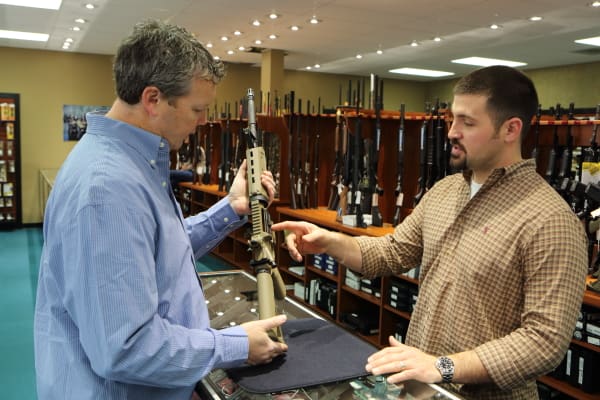As election day finally arrives, gun sales in the U.S. haven’t experienced the usual surge that has become common with presidential elections over the past 20 years. In fact, October 2024 actually saw a slight decline in FBI background checks on gun-related transactions with numbers dropping by five percent from the same period last year. This trend reverses an upward movement seen earlier in the year and marks a departure from historical election-year patterns, according to The Reload’s Stephen Gutowski. Typically, election years trigger a spike in gun purchases due to concerns over potential restrictions, but that’s not the case this time.
While the total number of sales-related checks through the FBI’s National Instant Criminal Background Check System (NICS) still exceeded a million in October—making it the 63rd consecutive month to hit that threshold—the volume remains notably lower than expected for a high-stakes election year.
“We haven’t seen what we typically see in an election year,” said Mark Oliva, spokesperson for the National Shooting Sports Foundation (NSSF), in an interview with HuffPost. Oliva attributed this deviation to a “steady state” in background checks rather than a spike, and he highlighted that Americans continue to demonstrate their commitment to Second Amendment rights, even if they aren’t flooding gun stores.
Analysts suggest that shifts in political realities may explain the trend. Democratic presidential nominee Kamala Harris has softened her stance on gun reform, even noting that she owns a pistol for personal protection. While most staunch 2A supporters recognize this is most likely mere political posturing to appeal to a broader, uninformed electorate, the ranks of gun owners have swelled in recent years with a number of liberal and moderate gun owners in the mix. These voters are likely to not be swayed by fears of a Harris presidency as more traditional, right-leaning gun owners might be. Given this tempered position, as well as the improbability of major gun reform legislation passing in a Republican-controlled Senate (a highly likely outcome of this election), some voters may feel less urgency to purchase firearms preemptively.
Firearms sales, while still steady and strong, have softened since they hit critical mass following fears of increased social upheaval in 2020. It was then that the combined events of the pandemic, the riots following the death of George Floyd, calls to defund police departments and progressive leaders allowing lawlessness to go unpunished in a number of Democrat-run cities that many Americans recognized the need to own a firearm for protection of themselves and their families.
The NSSF pointed to the NICS data, which they adjust by removing background checks tied to concealed carry permits, as a close indicator of sales. However, the numbers reflect broader dynamics, including the lingering effects of the pandemic gun boom, which, as already noted, brought new demographics into the firearm community.
“Law-abiding Americans – by the tens of millions – are quite literally voting with their wallets and investing in their rights,” Oliva told The Reload in a statement, indicating that while the rush may have slowed, enthusiasm for gun ownership remains strong across the nation.
Gun sales and ammunition sales skyrocketed following the first election of Barack Obama in 2008 out of fears he would push for harsher gun control measures. Those fears went largely unrealized as Obama focused on other issues such as healthcare, but it served to provide a profitable bump and backlog in production for many firearms-related businesses. And while there has been marked increase in gun sales leading up to this election, if Harris does win the election, it will be interesting to see what effect, if any, it has on gun sales following the election. Much of that may depend on who wins in the Senate.
Read full article here


